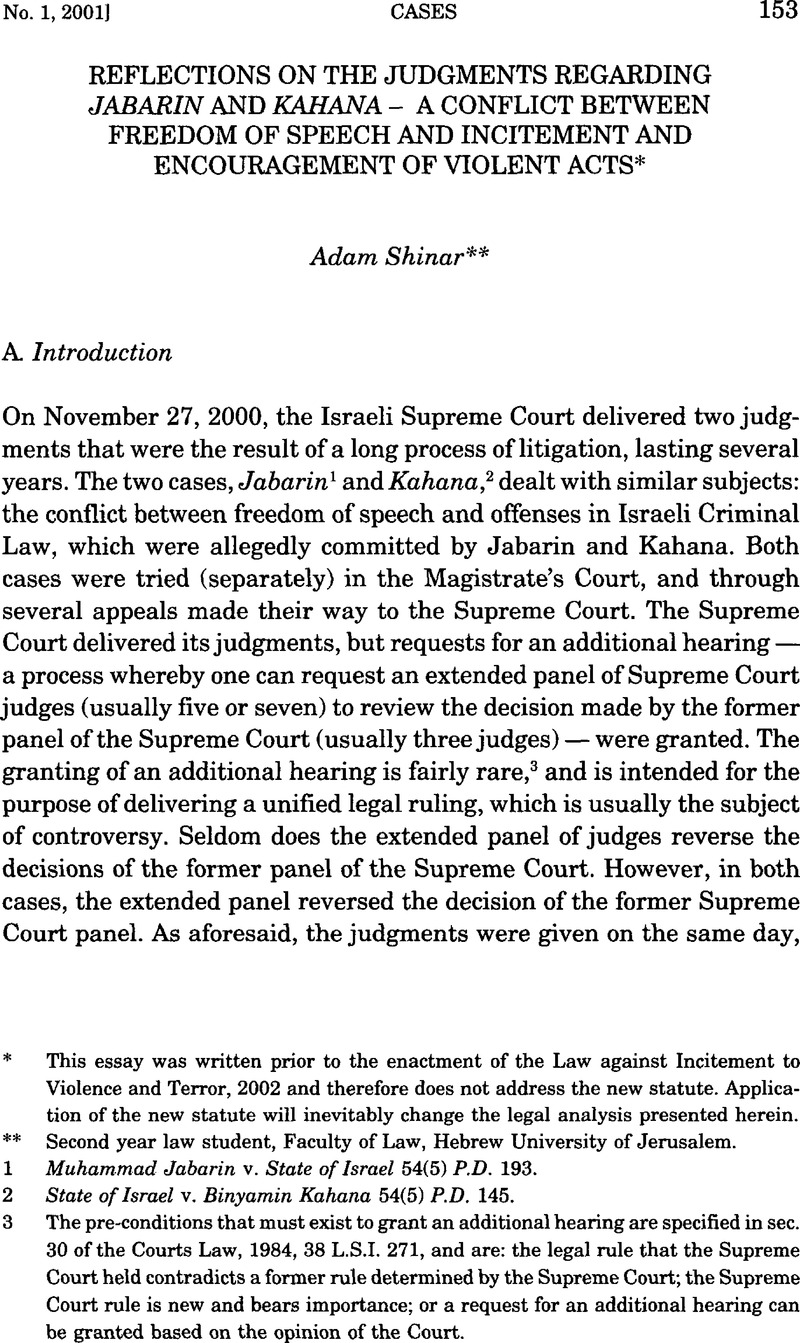Published online by Cambridge University Press: 04 July 2014

1 Muhammad Jabarin v. State of Israel 54(5) P.D. 193.
2 State of Israel v. Binyamin Kahana 54(5) P.D. 145.
3 The pre-conditions that must exist to grant an additional hearing are specified in sec. 30 of the Courts Law, 1984, 38 L.S.I. 271, and are: the legal rule that the Supreme Court held contradicts a former rule determined by the Supreme Court; the Supreme Court rule is new and bears importance; or a request for an additional hearing can be granted based on the opinion of the Court.
4 Indeed, such a legislative process has begun and the Law against Incitement to Violence and Terror was enacted in 2002.
5 See Alba v. State of Israel 50(5) P.D. 221.
6 Kahana v. State of Israel 52(1) P.D. 535.
7 As was suggested by Justice Tirkel in Kahana.
8 This can also be construed as consistent with section 34(21) of the Penal Law, 1977 which states: “If a law can be interpreted in several reasonable ways according to its purpose, the interpretation that should be chosen is the one most lenient towards the person who would be criminally liable according to that law”.
9 See also Kremnizer, M. “The Alba Affair: Inquiry Into Incitement of Racism” 30 Mishpatim 105, 142 (1999)Google Scholar; Harel, A. “The Regulation of Speech: a Normative Investigation of Criminal Law Prohibitions of Speech” 30 Mishpatim 69, 80 (1999)Google Scholar; Benvenisti, E. “Regulating Speech in a Divided Society” 30 Mishpatim 29, 66 (1999)Google Scholar. All these articles support the usage of a probability test in the Terror Prevention Ordinance, due to the importance of freedom of speech and the all-encompassing wording of the statute. They support such a test despite its contradiction with the literal meaning of section 4(a) of the Ordinance.
10 For example, the Legal Advisor to the Government's decision not to prosecute M.K. Taleb El-Sana due to the judgment in Jabarin.
11 The new law, which is in the midst of legislation attempts to converge the offenses discussed herein, and proposes the probability test endorsed by Chief Justice Barak in the Kahana criminal appeal, “likely possibility”, as opposed to the probability test he endorsed in the additional hearing, which was the degree of “probable”.